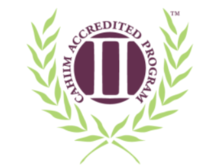Quick Links
About the Program
Courses & Curriculum
Admissions and Enrollment
Other Academic Programs
Research and Faculty
Student Resources
Contact Info

Janusz Wojtusiak
Professor, HAP
Division Director, Programs in Health Informatics, HAP
Director, Machine Learning and Inference Laboratory
For general inquiries, please contact hap@gmu.com.
Bachelor of Science in Health Informatics
The Bachelor of Science (BS) in Health Informatics at George Mason University is an interdisciplinary program that integrates health sciences, information technology, computer science, data science, and behavioral sciences. This comprehensive approach equips students with the skills and knowledge necessary to enhance patient care and improve population health outcomes.
What Is Health Informatics?
Health informatics is an applied science that combines healthcare, medicine, IT, and data science to address challenges and support decision-making in healthcare management and patient care. The field involves the collection, storage, and communication of health data; the analysis of this data for informed decision-making; the use of computer and telecommunication technologies to support healthcare systems; and the management of technology projects to ensure successful health applications.
![]()
BAM
Earn a bachelor’s in any discipline and an MS in Health Informatics through the accelerated master's program with at least 141 credits.
![]()
Curriculum
Gain expertise in health, IT, and data science. Flexible study options available. View the full curriculum in the University Catalog.
![]()
Faculty
Learn from expert faculty combining academic and industry experience to prepare you for success.
Internship
Gain hands-on experience through a health informatics internship, building critical skills with faculty and mentors.
Opportunities
The BS in health informatics provides students with a strong background in information systems, health management, computing science, and healthcare. It equips students with the necessary business skills and scientific knowledge for the field of health informatics. Graduates are prepared with the right skills to enter a fast-growing and in-demand job market.
Graduates from the program typically work as support staff in technology firms focused on health informatics applications. Top graduates continue their education toward an MS in health informatics. An accelerated BS-MS program in health informatics and an undergraduate Health IT minor are also available.
Outcomes
The following outcomes were measured for the Bachelor's in Health Informatics program in the academic year 2022–2023 and Spring 2024 semester:
- Acceptance Rate: 90% (70 applicants, 63 accepted)
- Enrollment Rate: 52% of accepted students enrolled (33 enrolled)
- Average Time to Degree Completion: 3.6 years (Based on AY 2022–2023 graduates; 8 graduates from Summer 2022, Fall 2022, and Spring 2023)
- Employment Post-Program Completion:
- 50% employed full- or part-time (Response Rate: 75%)
- 83% employed or pursuing further education (Response Rate: 75%)
- Program Graduation Rate: Not available (Program began in Fall 2021; six-year graduation rates pending)
- Retention Rate: 100% one-year retention rate for first-time freshmen (Fall 2022 cohort returning in Fall 2023)
- Student Satisfaction: 100% of respondents agreed they were satisfied with their George Mason education (Response Rate: 50%)
Quick Facts
What is health informatics?
Health informatics integrates healthcare, IT, and data management to improve patient care and operational efficiency.
What are the career opportunities?
Graduates excel in roles such as IT analysts, consultants, and data scientists across hospitals, IT firms, and public health sectors.
Can I complete the program online?
The BS in Health Informatics program is offered on campus, with the flexibility to complete some courses online, allowing students to best accommodate their schedules and learning preferences.
Have more questions?
Visit our Health Informatics FAQs Page or contact us directly at hap@gmu.edu for more information about the program and admissions.
Information for International Students
The Classification of Instructional Programs (CIP) code for the BS in Health Informatics is 51.2706, listed as Medical Informatics. It is considered a Science, Technology, Engineering, and Math (STEM) field. International students who wish to apply to Curricular Practical Training or Optional Practical Training (CPT/OPT) opportunities when graduating from the program should contact George Mason's Office of International Programs and Services.
Accreditation Information

The HI (Health Informatics) Baccalaureate Degree Program is in Candidacy Status, pending accreditation review by the Commission on Accreditation for Health Informatics and Information Management Education (CAHIIM). All inquiries about the program’s accreditation status should be directed by mail to CAHIIM, 200 East Randolph Street, Suite 5100, Chicago, IL, 60601; by phone at (312) 235-3255; or by email at info@cahiim.org.
